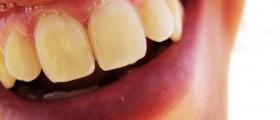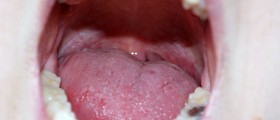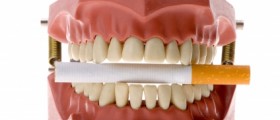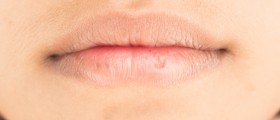
Black Tongue – a Pigmentation Problem?
First of all, people need to know that there are a lot of reasons why black spots on tongue appear. Black spots can sometimes form on the surface of the tongue because of hyperpigmentation. The occurrence of hyperpigmentation has a genetic base in most cases. The problem develops all by itself but it is usually perceived as a genetic trait that keeps resurfacing. Black spots are usually relatively small and they may appear on the lower or the upper side of the tongue. These genetic traits in the form of black spots on the tongue usually require cosmetic or laser surgery, both of which remove black spots rather easily. Dermatologists refer to this condition as an oral fibroma.
Another medical phenomenon that may be causing the appearance of black spots on the tongue is sometimes referred to as hairy tongue. Hairy tongue usually affects individuals who consume tobacco excessively. It does not matter whether the tobacco is chewed or smoked, both ways are damaging for the tongue. The condition can also be caused by certain types of antibiotic medications. Furthermore, the spots may be a direct consequence of an excessive growth of certain types of fungus on the very surface of the tongue. In order to reduce the symptoms of the condition, a patient should significantly decrease the consumption of alcohol and all different types of tobacco products. Tongue cleaners may also be helpful to a certain extent. It is important that people treat this condition as soon as it occurs in order for certain serious complications to be avoided. Candida albicans overgrowth is, for instance, one of the mentioned complications.
In certain number of patients the underlying cause of black spots on the tongue is oral cancer. Oral cancer develops as a result of uncontrollable growth of cancerous tissue in the oral cavity and as the tumor gradually develops, it also largely affects the pigmentation of the tongue. Oral cancer is usually associated with small bumps that may grow in the oral cavity and these are usually accompanied by having trouble swallowing.Finally, black spots on the tongue can be caused by tongue piercing. This happens due to the process of healing, when the quantity of pigment in the pierced area changes.All different cases of black spots on the tongue need to be evaluated by a dermatologist who will opt for the best treatment for the condition.
Cysts under Tongue - Another Tongue Problem
Black spots on the tongue are not the only problem that people may experience when the tongue is concerned. Cysts under the tongue are known to interfere with speech, appetite and general well-being.
Most of the time, small red cysts come about due to the malfunction of the salivary glands. These glands are accountable for keeping the mouth salivated and they continually supply it with saliva. The digestion relies totally on the saliva and unfortunately, sometimes, the salivary glands do in fact malfunction which then causes a person to suffer from cysts under the tongue. If there is an unexpected obstruction of the salivary glands which in turn leads to an impediment ,it can cause the cysts to burst.In some cases, there may have been an injury sustained to the salivary glands that has developed as a consequence of an unintentional bite on the lip or the cheeks. This action can cause a thicker and excessive saliva production or it may initiate formation of a stone and cysts beneath the tongue. If there is a stone that has formed in the salivary tract, it can stop the flow of the saliva which in turn leads to swelling of the affected gland. The oral cavity becomes dehydrated and one develops a condition medically known as sialolithiasis, or in easier terms salivary gland stones. The cysts under the tongue are referred to as ranula.Treatment for Cysts under Tongue
People need to know that in most cases cysts under the tongue will disappear on their own. They will definitely go away by themselves if there has been some form of an injury to the salivary glands, for example a bite to the lips or the cheeks.In some cases the cysts reoccur and do not heal by themselves when surgery may have to be an option. As far as sialolithiasis is concerned, surgery is the best treatment option. A well experienced surgeon will remove the stone from the affected salivary gland and may need to remove the very gland itself. However, recurrent stone formation may occur and should be prevented, if possible.
















Your thoughts on this
Loading...